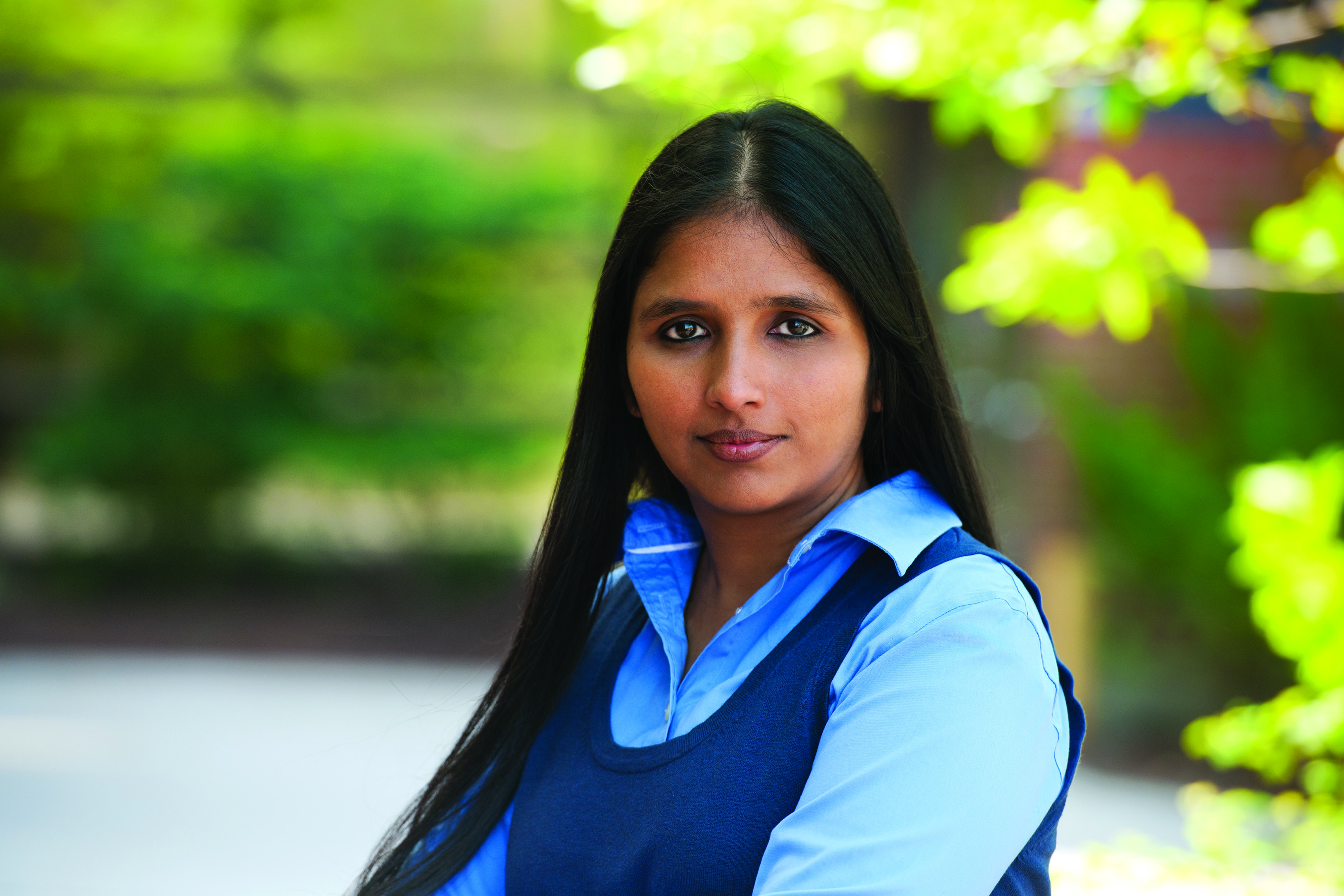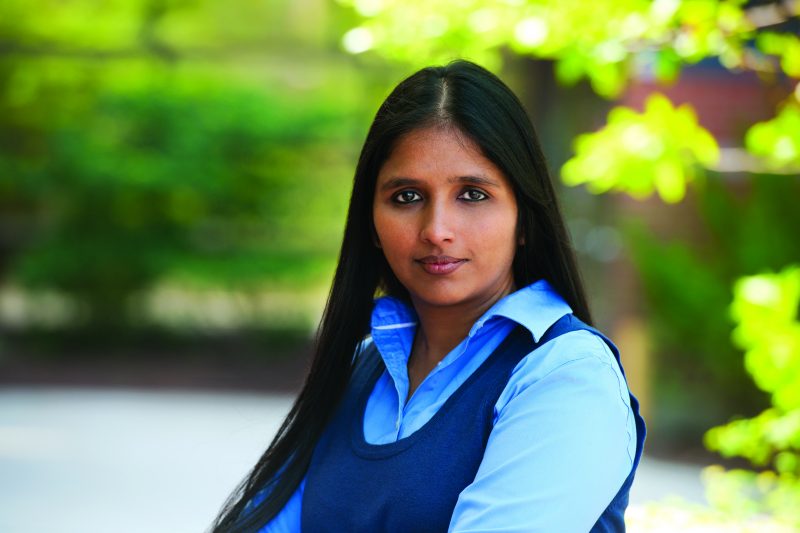‘Quantum Woman’ raises the bar at Laurier


Wilfrid Laurier University may have a new superhero in the form of professor, Dr. Shohini Ghose.
Ghose, recognized by many as Quantum Woman at the Smithsonian magazine Future is Here event, is an associate professor of physics and computer science at Laurier and the director of the Centre for Women in Science.
During the event, Ghose presented her talk in the form of explaining quantum physics using superheroes and superpowers.
According to Ghose, as a child she always had a fascination with superheroes and their powers.
Once she started studying quantum physics later in life, she realized she had the opportunity to pick more than one superpower.
“If I were somebody like a superhero, like Quantum Woman, then all those quantum powers would be like having like superpowers,” explained Ghose.
The 2014 TED Fellow and internationally celebrated quantum physicist was originally born and raised in Delhi, India.
Growing up, Ghose explained that she had always been a curious individual and took interest in mysteries and puzzles.
“Eventually I realized the greatest mysteries are the mysteries of the universe, like how does the universe works and why do the planets orbit around the sun, for example.”
Later in life, Ghose realized she could solve these mysteries by collecting clues from the universe and finding patterns and evidence to build a story.
“To me, science—physics in particular—was basically like being a detective and that really appealed to me. I had good teachers who encouraged me [and] my parents encouraged me,” said Ghose.
Before taking on a position at Laurier, Ghost earned a PhD in physics in the United States and later completed a post-doctorate in quantum physics at the University of Calgary.
In 2005, she was encouraged by her post-doctorate advisor to apply for a position at Laurier.
“So I applied, but then I did get an interview, so I came and visited Waterloo and did a talk and got the job to my big, great surprise.”
Along with being a professor, Ghose is also the director of Laurier’s Centre for Women in Science, which encourages women across all areas of science to come together and celebrate their contributions to science and social sciences, as well as challenges women may face in their careers.
As a quantum physicist, Ghose realized early on in her career that there were very few women in physics, as the field wasn’t known as a welcoming environment for female students.
In response, Ghose connected with Canadian physics communities, along with other female physicists and realized other women in science have been discriminated against because of their gender.
“There are some areas, it’s not just physics, but other areas like computer science [and] mathematics where women have always been underrepresented, so I was wanting to do something, now that I was getting more established in my own career as a professor,” said Ghose.
Other successful females at Laurier, such as the provost and vice-president of academics, Deborah MacLatchy, and vice-president of research, Abbey Goodrum, both encouraged the idea of having a centre at Laurier exclusively for female scientists.
“I realized, as a woman scientist, I wasn’t necessarily an expert on gender issues and we don’t usually talk to people across the aisle (if you like) in other disciplines,” Ghose continued.
“I thought a centre would be a way to bring together women scientists and those who are gender experts or experts in any [areas].”
The idea was discussed with the university and was established by Laurier’s Office of Research Services.
As a Laurier professor, Ghose studies a topic called “quantum information science,” which can use the laws of quantum physics to access information for specific tasks, such as computing, communication and security, among other factors.
“So if we can take these peculiar quantum laws which are like superpowers and use them, we can do interesting things like teleportation, for example, or have superfast computers that completely beat any known existing computer at certain tasks.”
As for all women currently studying science, or hope to, Ghose believes they should follow their passion, no matter their race, age or gender.
“The universe does not actually care what your gender is,” Ghose continued.
“The universe is an incredibly beautiful, wonderful, inspiring place and there is room for all of us to explore whatever our passion.”


